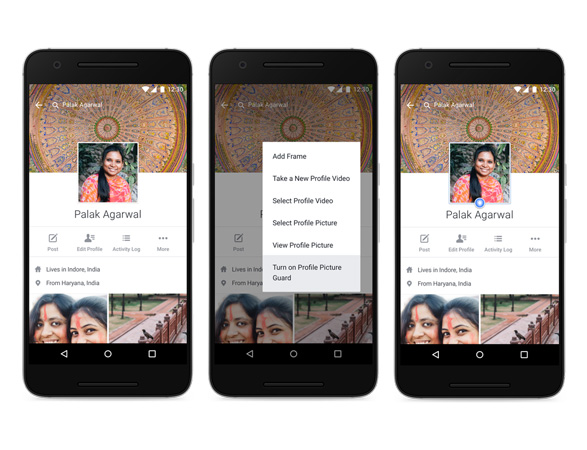Facebook introduces a tool to help women resist personal image theft
Facebook is upgrading some features of protecting user avatars that make them safer, these features have begun to be deployed in India.
On Thursday, the company introduced users to two new features to reduce the problem of avatar repetition in India. According to Facebook, although this problem is not limited to India, it occurs worldwide but it is now most popular in this country.
- How to permanently delete a Facebook account on a computer
- This is how Live Stream Facebook Video on PC, Fanpage
Features include avatar protection (profile picture guard) and profile picture design. The protection feature will reduce some ways to copy images. For example, other users cannot download, share or send avatars as a status on Facebook.
The company also said the new enhancements and upgrades will prevent users from taking screenshots, although the new protection feature will only be available on Android devices, but at least Facebook already has those. Initial moves to protect women.
The second feature is the visual icon - a type outlined on the photo for viewers to see this avatar is being protected. Facebook realized that using a design overlay on the photo would make other users less likely to copy the image (about 75%).

If users find that their avatars are being abused, they can report. In this case, the design will be used in conjunction with other signs to verify that the image has been copied or abused.
There are several forms of misrepresentation of avatars - including fraud, sexual harassment, and fraudulent filing of spam among other users. Scams on Facebook often happen like that. In September 2016, Hindustan Times reported on social media replication, in which scammers faked users and made friends with people they could know on Facebook and the section. The final target is blackmail.
Inspector General of the National Investigation Agency (NIA) - Alok Mittal exchanged with Times: Every media user in India is likely to be the victim of online scams and 16% of The online scam is a social media scam. "Representations of identity theft are especially concerned about women on the site.
Aarati Soman - Facebook's product manager - who works on these features, is a member of a large group specializing in women's products in emerging markets. Soman's team found that: " Some women choose not to share their representative photos of them anywhere on the Internet because they worry about bad issues that may occur with those photos. . "
Soman notes that the avatar icon is mainly visual cues, making it easier for users and their relatives to feel safe. In India, many married women are very concerned about the problem of their photos being abused and Facebook's protection features can ensure users' photos are safe.

To promote this feature, Soman said: Facebook will use video ads as well as translate instructions for this feature in every local language.
It is unclear whether these tools can make Facebook experience safer for women in India, but they are designed for such purposes. Protection and design features of avatars can prevent some people at risk of abuse and bad intentions with other people's avatars.
Soman said: Although these features are just a small feature, this is the beginning of the group's efforts and efforts and they hope it will be expanded based on the lessons learned about this tool. The country is a big market for Facebook and will be a key driver when it reaches 2 billion users.
Hopefully, these features of Facebook will soon appear in other countries so that users of social networking experience feel safer.